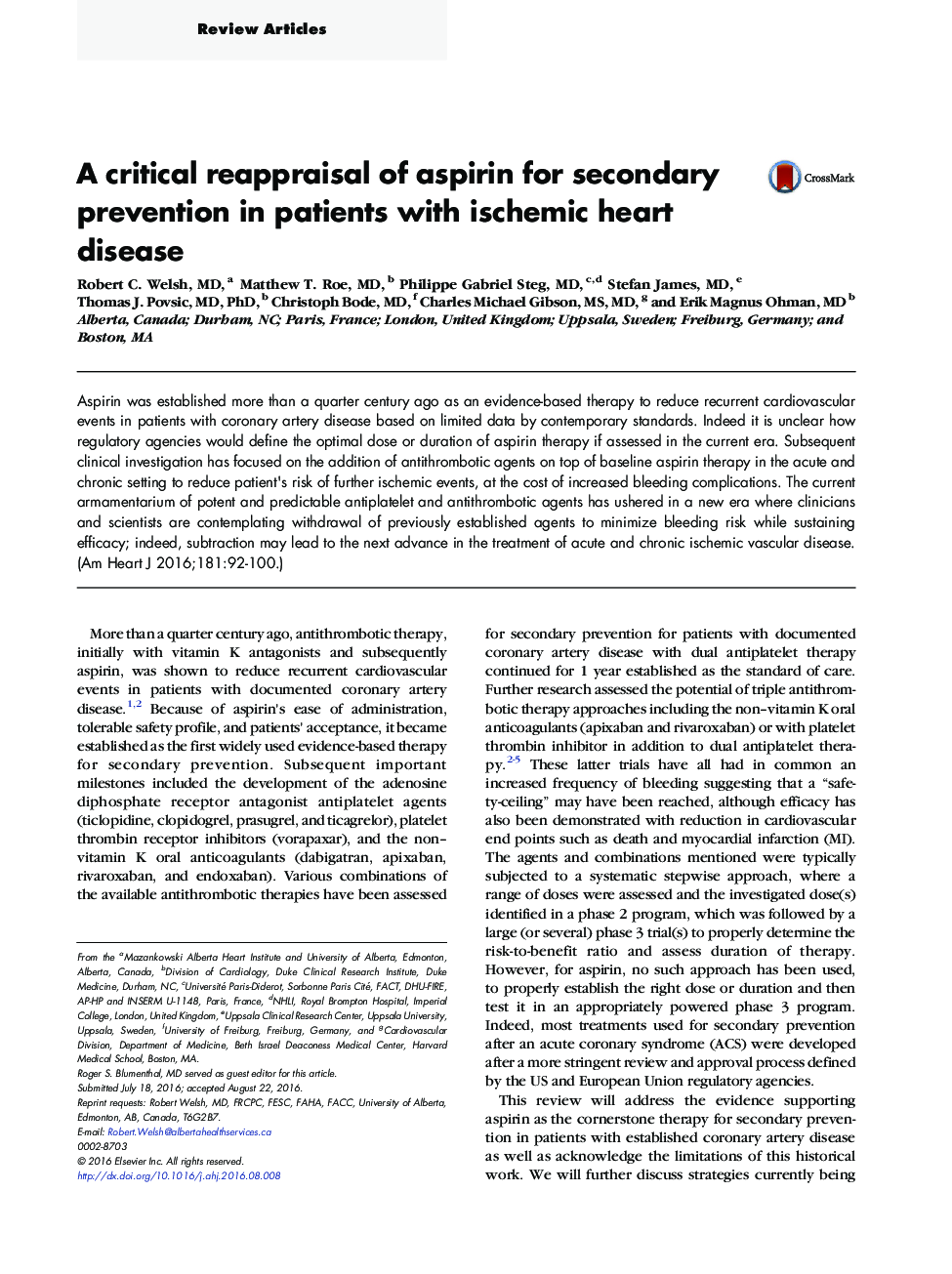| Article ID | Journal | Published Year | Pages | File Type |
|---|---|---|---|---|
| 2848793 | American Heart Journal | 2016 | 9 Pages |
Aspirin was established more than a quarter century ago as an evidence-based therapy to reduce recurrent cardiovascular events in patients with coronary artery disease based on limited data by contemporary standards. Indeed it is unclear how regulatory agencies would define the optimal dose or duration of aspirin therapy if assessed in the current era. Subsequent clinical investigation has focused on the addition of antithrombotic agents on top of baseline aspirin therapy in the acute and chronic setting to reduce patient's risk of further ischemic events, at the cost of increased bleeding complications. The current armamentarium of potent and predictable antiplatelet and antithrombotic agents has ushered in a new era where clinicians and scientists are contemplating withdrawal of previously established agents to minimize bleeding risk while sustaining efficacy; indeed, subtraction may lead to the next advance in the treatment of acute and chronic ischemic vascular disease.
